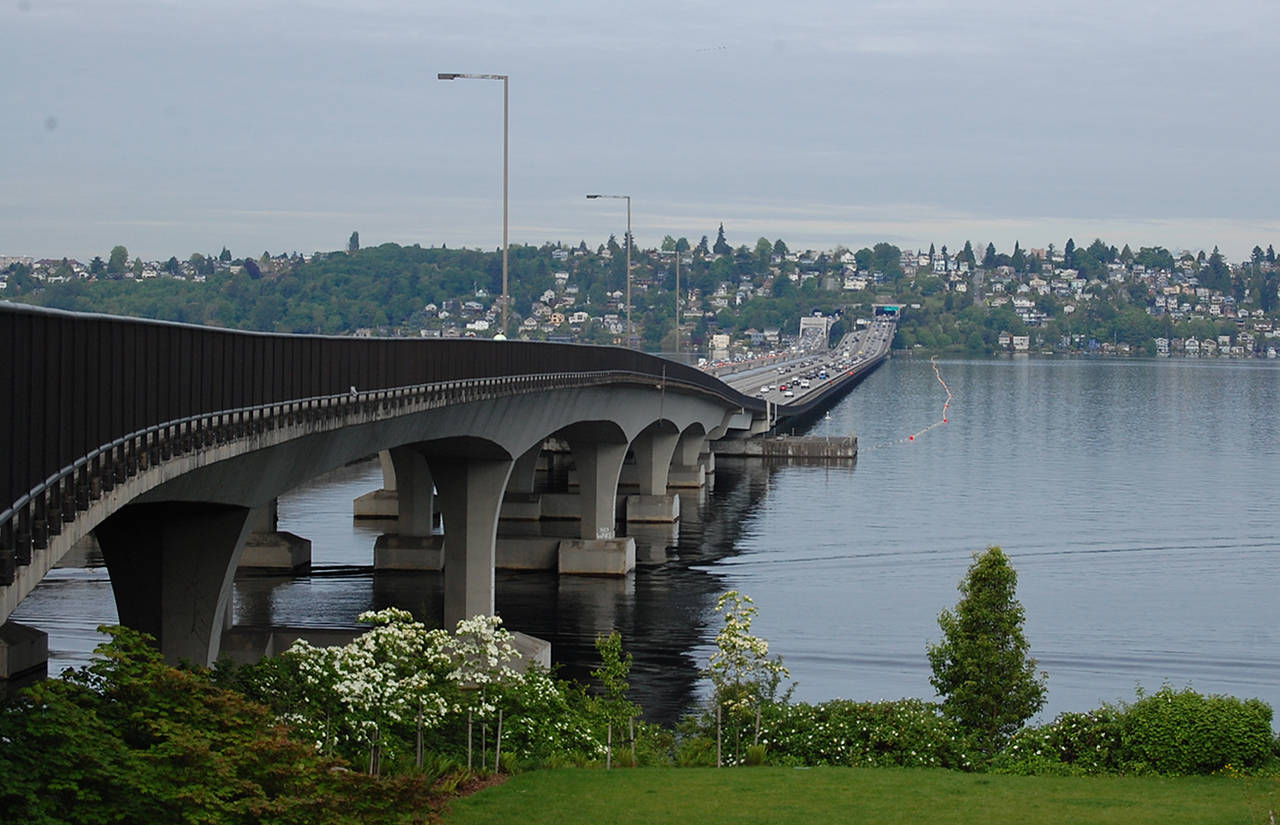Following a six and a half hour executive session and back and forth discussion with Sound Transit on May 31, the Mercer Island City Council voted 5-1 to approve a tentative settlement agreement that would end its lawsuit against Sound Transit and the Washington State Department of Transportation (WSDOT) regarding access to Interstate 90.
The settlement will “offset the impacts of light rail construction and operation and partially compensate for permanent impacts to local traffic patterns, including the loss of access to westbound I-90 from the Island’s only 4-lane arterial (Island Crest Way),” according to a city news release.
Under the agreement, reached just before a midnight deadline and hours before both parties were set to appear in court, Sound Transit would pay about $10 million to the city for mitigation measures, including Mercer Island-only parking spots. These spots will help replace those in the South Bellevue Park and Ride lot, which closed earlier this week and will reopen in 2023, along with Sound Transit’s East Link light rail project.
The settlement, if approved by both the council and the Sound Transit board, would end the city’s lawsuit and the threat of delaying East Link. Sound Transit’s approval is anticipated at the June 22 Board meeting. The King County Superior Court hearing scheduled for June 1, where a judge would have heard the city’s motion for preliminary injunction to delay the closure of the center roadway and light rail construction, was cancelled after the tentative agreement was reached.
“The actual settlement language must be voted on by both parties later this month,” according to city. “In the meantime, the city, Sound Transit, and the Washington State Department of Transportation (WSDOT) have suspended their respective legal actions.”
Light rail will be built in the I-90 center lanes, closing them permanently to vehicle traffic. Solo drivers traveling between Mercer Island and Seattle had enjoyed access to those lanes, which were designated primarily for transit and carpools, due to a regional agreement signed in 1976, and updated in 2004.
The city has been trying to resolve issues of access to I-90 and the ensuing “loss of mobility” once light rail construction begins with Sound Transit and WSDOT for several years, and decided to sue both agencies in February following a determination that the special single occupant vehicle (SOV) access would be lost with the center lanes.
The agreement does not address SOV access for Island traffic to the new I-90 HOV lanes or the westbound Island Crest Way on-ramp, which is slated to become HOV-only when the I-90 center lanes close on June 4. The Federal Highway Administration (FHWA) informed the city last August that under federal law, SOVs are not permitted to use HOV lanes.
The city “will not cease in its efforts to advocate for a federal solution to this on-ramp issue, in collaboration with its regional partners and the Congressional delegation,” according to its news release.
“I couldn’t get it done the way we wanted, but I’m going to live with it and continue to fight,” state Rep. Judy Clibborn said at the June 1 Mercer Island Chamber of Commerce meeting.
Clibborn, an Island resident and chair of the House Transportation Committee, had been scheduled to speak at Thursday’s Chamber meeting with the other legislators in the 41st district, Rep. Tana Senn and Sen. Lisa Wellman.
Under the tentative agreement, Sound Transit would pay $5.3 million to Mercer Island to address vehicle, bicycle and pedestrian access issues resulting from the closure of the center roadway or fund “last-mile solutions” that enable Islanders to access transit without driving, and $4.6 million to provide about 100 additional commuter parking stalls during the East Link construction period and build permanent commuter parking spaces on the Island. The agreement also addresses I-90 emergency response and bus-rail integration.
Sound Transit’s contribution for transit user parking stalls will be 49 percent of the construction cost per stall, or approximately $45,000 per stall ($22,050). Clibborn said that if the city of Mercer Island pays for more than 50 percent of the parking project, it has more flexibility with how it is regulated.
Clibborn has been working with the offices of Gov. Jay Inslee and Congressman Adam Smith, along with Sound Transit and WSDOT, to get officials in the federal government to change their mind and grant grandfathered SOV access to the Island Crest Way on-ramp. She said FHWA “would not budge, but I don’t think that’s the final say.”
“There’s nothing that will preclude us from having that access in the future, if we can get the federal government to go along with it,” Clibborn said.
Clibborn said she was proud of the Mercer Island City Council’s work behind the scenes to come up with an acceptable term sheet. Though she said she was “disappointed” in Sound Transit and WSDOT, who were “not upfront” about the I-90 access issues, the city “stayed at the table.”
“While this has been an all-consuming and expensive process for Council and staff, I’m pleased that we have finally reached a settlement that advances the mobility needs of our residents,” Mercer Island Mayor Bruce Bassett said in a statement. “We appreciate the last-minute effort to reach an agreement by members of the Sound Transit Board.”
The council intends to discuss its decision more fully with residents at its next regular meeting on June 5.


